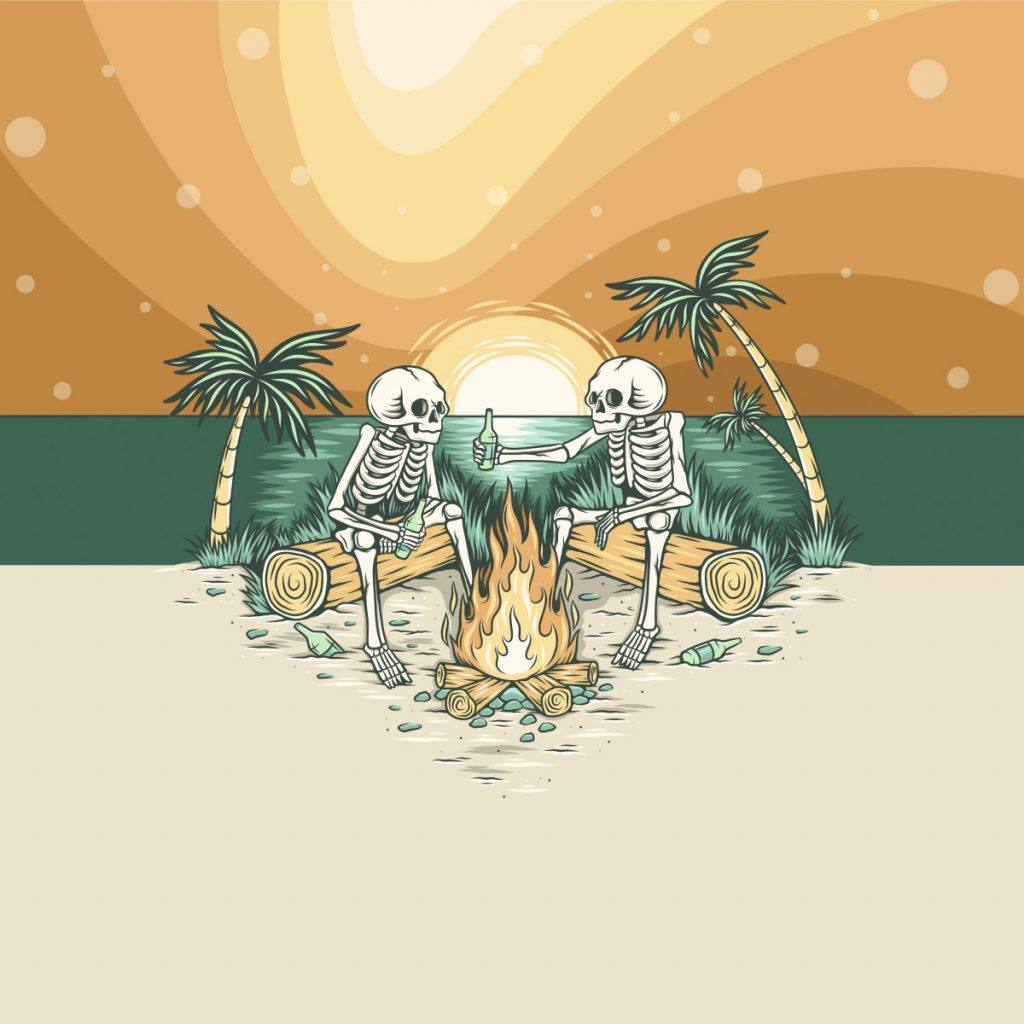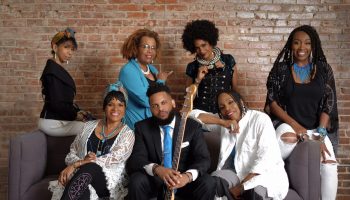
Gabriel Weber
Staff Writer
Each and every O.A.R. concert “is a snowflake,” said the band’s guitarist, saxophonist and backing vocalist Jerry DePizzo. “No one is the same.”
Never playing the same set list twice — and rarely following the set list when they make it, O.A.R. prefers reacting to the experience of the audience and environment rather than sticking to a plan, and that’s what is in store for Chautauqua at 8:15 p.m. tonight in the Amphitheater as the rock band makes the latest stop on its Lost Weekend Tour, with special guests Fitz and the Tantrums and Ripe.
Lead vocalist and guitarist Marc Roberge; lead guitarist and backing vocalist Richard On; drummer Chris Culos; bassist Benj Gershman; and DePizzo will be joined by Mikel Paris on keys, backing vocals and percussion, and Jon Lampley, playing trumpet and singing backing vocals.
O.A.R. — short for “Of a Revolution” — found commercial success in the mid-2000s with the release of their album Stories of a Stranger in 2005 and a sold-out Madison Square Garden show the next year. Their sixth studio album, All Sides, came in 2008 and featured the radio single “Shattered (Turn the Car Around)” which later was certified platinum by the RIAA.
Founded nearly 30 years ago, the original bandmates — Roberge, On, Culos and Gershman — all attended Thomas S. Wootton High School in Rockville, Maryland, and later met DePizzo at Ohio State University.
The sheer size of Ohio State, and the fact that Columbus is home to more than a dozen colleges, aided in building the bedrock for O.A.R. pursue their music-making passion. DePizzo met Roberge at freshman year orientation and became fast friends; it turned out that DePizzo offered a missing piece of the puzzle. Starting off with house parties, bars and anything else they could book, DePizzo said, their jam sessions would take on a free-form structure with improvisation.
“That kind of jamming helps solidify our relationship onstage together, because you really know the folks around you. It also allowed us to create and cultivate a live environment that you hopefully feel better when you leave than when you got there,” DePizzo said. “We take a lot of pride in the fact that, if you want to go there and hang out with your friends, there’s an experience for you. If you want to bring the family there, there’s an experience for you. If you want to make it date night, we work really hard to make it an elevated, premium experience so that it’s worthy of a date night with a babysitter and everything else that goes along with that.”
The longevity of the group is a feat in itself. External or internal factors, stagnation and inconsistent direction can lead to groups debanding — but not for O.A.R. DePizzo attributes their endurance to a mutual respect and appreciation of one another.
“First and foremost, being in a band, there are a lot of parallels between long-term partnerships, like a marriage or any other familial relationship. We don’t take that for granted,” he said. “This is a ‘get to,’ not a ‘have to’ type of job. Not everybody that goes out there and tries to do this job, gets to do this — we get to do it at a pretty high level, and I’ve done it for three decades now. If we tried to replicate it, we couldn’t do that, so there’s something kind of unique and special about that we appreciate.”
The musical themes O.A.R. tends to gravitate toward have to do with friends and family. They have found that an authentic perspective resonates with the audience and has made O.A.R.’s distinctive sound what it is.
“O.A.R. is inherently O.A.R. — if we tried to play anything, it would sound like O.A.R.,” DePizzo said. “The guys especially have a really strong sense of home and where they came from, with a great deal of pride and admiration from that. That was really the primordial soup of what O.A.R. turned into. I think what we really write about is friends and family, our experiences through life — and providing an honest perspective really resonates with folks. We cherish that, and we don’t take it for granted.”
DePizzo first wanted to play guitar after watching his uncle, who was about 11 years older than him, play in a band. When DePizzo wanted to play the drums in the sixth grade band — where there were 19 drummers out of 35 kids — he changed his mind, as his uncle already had a saxophone.
“I had great teachers and band directors throughout my youth,” DePizzo said. “I was fortunate that they fed my passion for music, so they would let me play saxophone. They’d let me play drums in the marching band and play trumpet in the concert band. They let me play bass, guitar and jazz band to do all the Southern top sets, so I kitted the passion, and they fed it; it just so happened to work out.”
O.A.R. sees creating similar opportunities as a moral obligation. Through their creation of the Heard The World Fund, they support youth and education in the United States; O.A.R. has also provided a yearly full scholarship to students attending Ohio State, done volunteering work in Flint, Michigan, and offered resources to public schools.
“We’re very much a ‘find a need, fill a need’ type of philosophy with our philanthropic efforts,” DePizzo said. “We focus on helping kids and family because some folks gave us helping hands throughout our lives, and you never know where it’s going to come from or what it’s going to lead to. … We create opportunity where opportunity needs to be created. For me, that’s one of the more rewarding elements of this job.”




